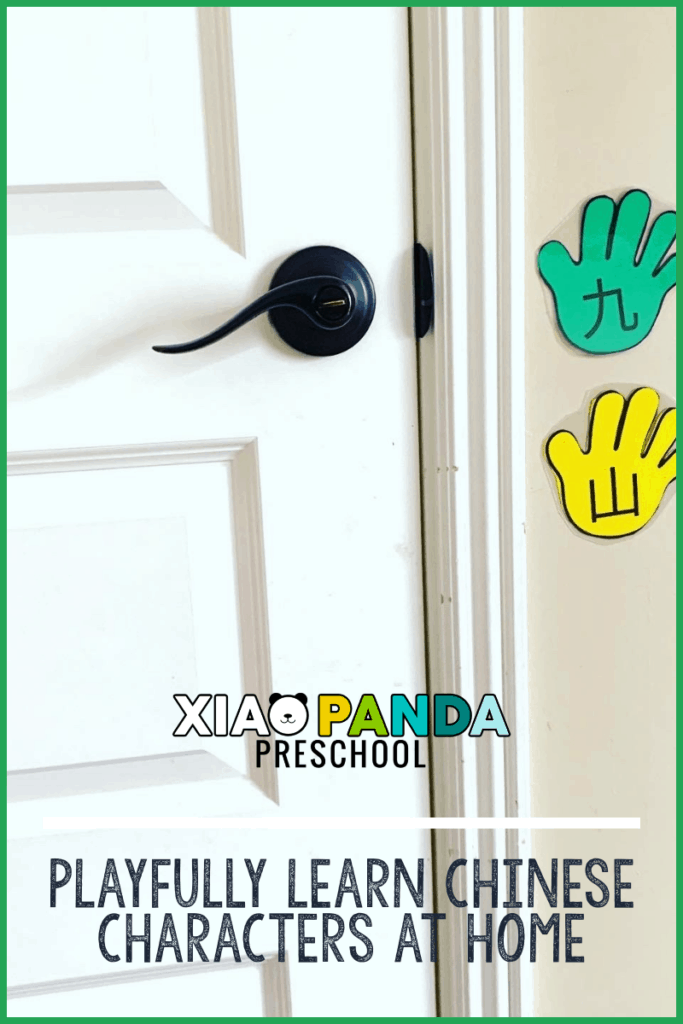Learn Chinese Characters at Home
The Game that Makes Learning Chinese Characters Fun for Kids
I am guessing you’re here because you want to help your child learn Chinese. I do too! And when I say “I do too” I mean I am in the same boat, trying to help my children learn Chinese, but ALSO that I really want to help YOU and YOUR children learn Chinese too! This post will share a simple activity and routine that will make learning Chinese characters fun for you and your kids. It is meant to be a game you set up at home, but if you’re a teacher you could easily implement it into your classroom, or you could set it up at Grandma or Grandpas house too!
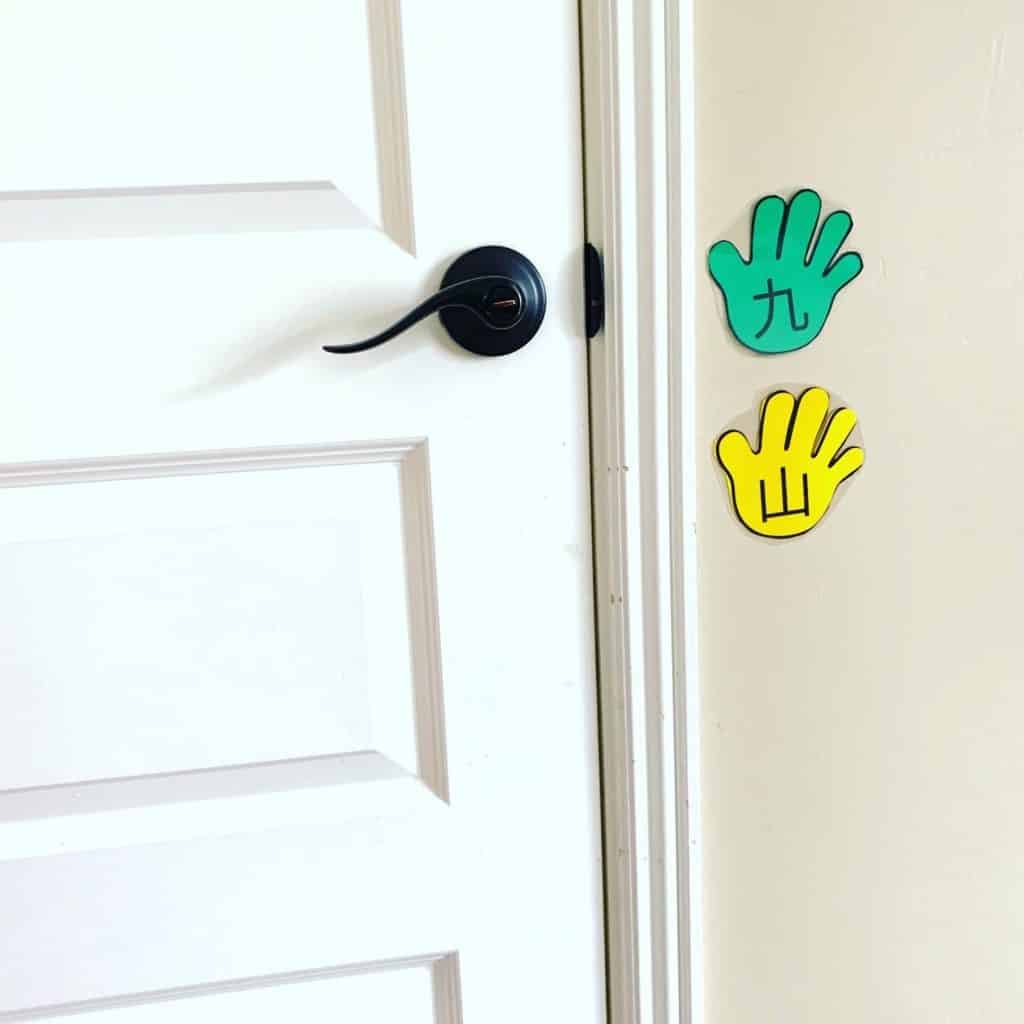
The concept is this: the Chinese words are passwords or passcodes that your child has to say and touch as they pass by a certain area.
For example, the characters “你” and “我” are at the side of your front door, so every time you leave the house you and your child touch the hand that says “你” and say “ni” and then touch the word that says “我” and say “wo.” That is the correct password and now you can pass by that spot or in this case leave the house through the front door.
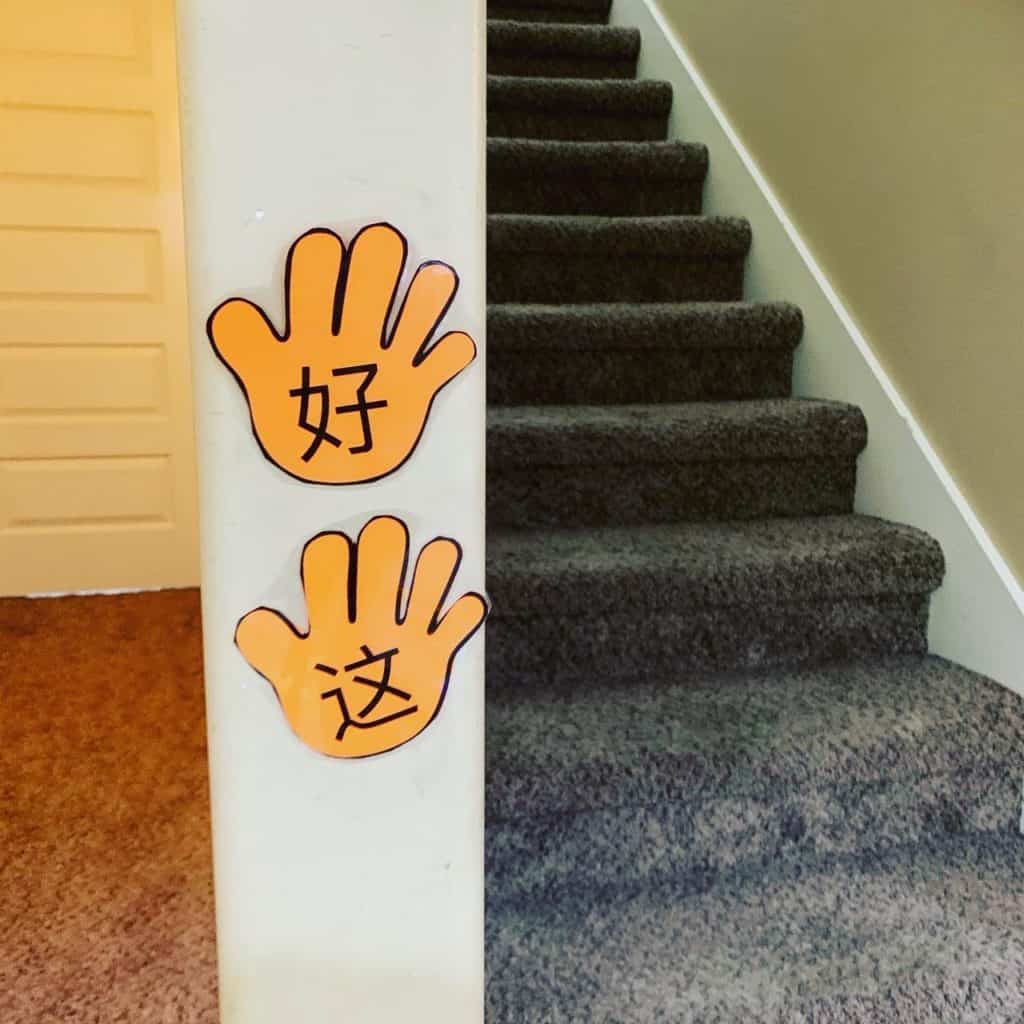
This Chinese learning game is super effective and fun if you follow a couple of key tips and tricks.
- MODEL IT YOURSELF! Do your best to remember to give the hands a high five and say the words as you go by. Even if your child is playing with a toy and not watching you, they’ll probably notice your example and want to copy you. Also, if you don’t know Chinese, this is a great way to practice yourself and learn together!!
- Make it silly and fun. There is no need to be upset with yourself or your child if you forget the words or forget to do the password, its just a reminder to try and practice. Your child will enjoy the game if you enjoy the game.
- Place the Chinese Password hands at the child’s eye level. Your child needs to see and touch the words, so make sure they’re at a good visual level for them. If you’re forgetting to do it because you can’t see the words, you can add an extra “adult” set.
- Place the Chinese words in high traffic locations. The more times you pass by and practice, the more you’ll learn! Try putting the characters inside the bathroom door, so they look at them while going potty or right outside their bedroom door.
- Remember to have fun with it! Be playful and happy and your child will feel happy while they are learning. This creates good feelings and a positive attitude about learning Chinese (or any target language)!
What to Do When the Game is Too Easy
- When a word is becoming super easy, try changing it’s location to make sure your child is looking at the word and not just associating the word with a certain location. (Although that could be effective if you’re trying to learn certain words about locations such as bathroom, bedroom, or door!)
- Change out the words! Place Chinese characters that are “mastered” into a binder to review from time to time and then place a new word.
- Add more words to a location. Rather than having one or two words next to their room, add an extra word or two or even try creating a phrase!
- Create more places for passwords. Rather than only having the password by their bedroom door, place one by the garage, one by the toys, one in the kitchen, etc. You get to decide how to make it fun for your child! Do what works best in your personal situation.
Chinese for Kids: How to Help Your Child Become Bilingual from an Early Age
Intro Chinese is becoming an increasingly popular language for kids to learn, and for good reason. With China’s growing influence in the global economy, being

Get Them Hooked: Top Book Suggestions for Chinese Beginners
Are you looking for book suggestions to introduce your children to Chinese? Look no further! Here are my top book suggestions to get your kids
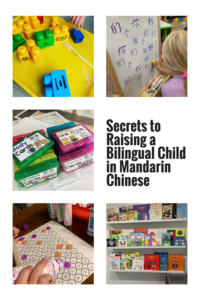
Secrets to Raising a Fluent Child in Mandarin Chinese
Raising a bilingual child in Mandarin Chinese can be both a rewarding and challenging experience. With the right guidance, parents can ensure their children are

A Mindful Approach: How to Incorporate Mindfulness for Kids in Your Classroom
Mindfulness is an increasingly popular approach to life that can have tremendous benefits for both children and adults alike. As teachers, it is our responsibility
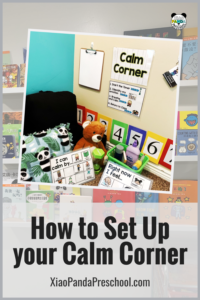
Teaching Self-Soothing Skills in Early Childhood Education through Calm Corners
Creating a “calm corner” in the early childhood classroom is an effective way to help children learn how to self-soothe and manage their emotions. This
Exploring the Benefits of Using a Preschool Question of the Day
As educators, we are always looking for creative ways to engage our preschool students and promote their cognitive and linguistic development. One effective method is

